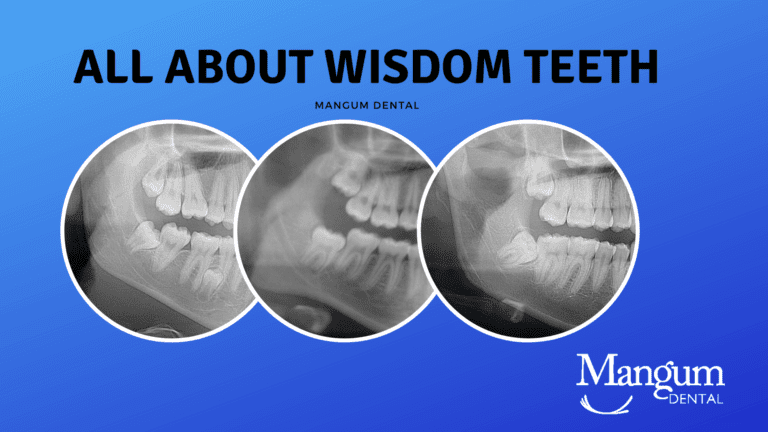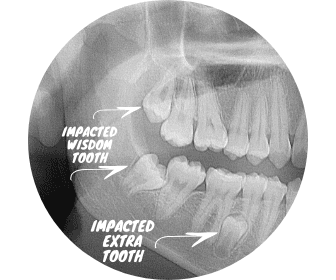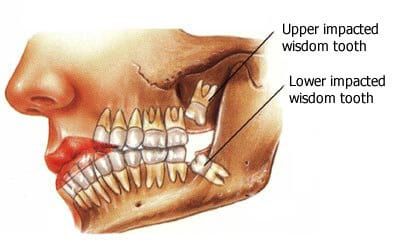Oral Surgery & Wisdom Teeth

All about wisdom teeth
Wisdom teeth are also known as 3rd molars and the last teeth to come in, or erupt. They develop in the 2nd decade of an individual’s life (teenage years) and usually erupt in the late teenage years or early 20’s. They can erupt or come into the mouth with little to no painor there can be some discomfort. Usually the discomfort is not from the teeth coming in, but with an infection or biting on a thin flap of gums partially over the tooth.
Do all wisdom teeth need to be removed?
Not all wisdom teeth need to be removed, however it is recommended in many patients due to insufficient space for complete eruption. These teeth are often more difficult to clean, prone to bone loss, and can be surrounded by inferior type of gum tissue.
Is it painful to have wisdom teeth removed?
Typically, the patient is completely numb and feels only pressure during the procedure. There is a wide variety of post-operative response among patients. Some patients report a low-level of discomfort while others explain a higher pain level than expected. Typically, ibuprofen and acetaminophen provide adequate comfort after the procedure.
What is an impacted wisdom tooth?
An impacted tooth is a tooth that doesn’t erupt into the mouth and stays in the bone. In one sense, they are stuck. A partially erupted tooth will break the surface of the gums, but won’t fully come into the mouth. This is problematic because bacteria can get below the gum surface and around the tooth. This area is not cleansable by the patient or a dental hygienist.
Who removes wisdom teeth?
General Dentists or Oral Surgeons typically remove wisdom teeth. It often depends on the dentists training, aptitude for surgical procedures, and a careful evaluation of the radiographs or other images. At Mangum Dental, we extract many wisdom teeth and refer the most difficult cases to the oral surgeons.
Do I need to be sedated or asleep to have my wisdom teeth out?
Being sedated or asleep during extraction of wisdom teeth is a personal preference. The principal feature of sedation is amnesia. When a patient does not want to remember the procedure, we recommend a referral to an oral surgeon for sedation. Otherwise we use local anesthesia to numb the area sufficiently prior to extraction.
At what age does one have their wisdom teeth removed?
Wisdom teeth are easiest to remove when they are not yet completely developed and have moved closer to the surface. It becomes more difficult to remove when they are fully developed or as a person gets older. Everyone develops at a different rate, however 18 years-old is often ideal for the patient and the doctor.

This radiograph shows two impacted wisdom teeth as wellas an impacted extra tooth. All three of these teethneeded tobe extracted to help the patients mouth remainhealthy and to avoid future problems.

This artist’s drawing of the mouth shows wisdom teeth thatare fully developed, but not fully erupted.



